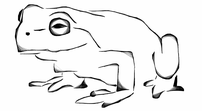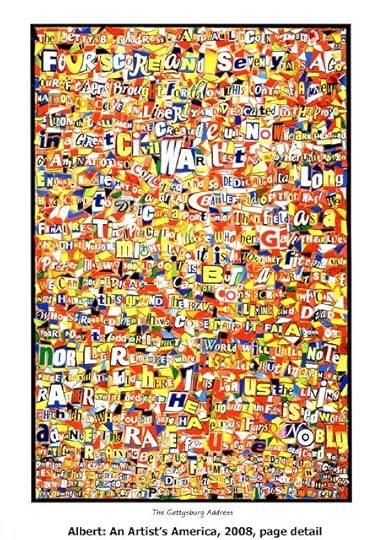Andrew Furst's Blog, page 22
November 23, 2017
Kiss – Verse Us (Poems by Me)
[image error]
If you enjoyed this post, please like and share.
Verse Us - Poems I write: haiku, senryu, mesostics, free verse, random word constructions, I might even use rhyme or meter once and a while.
 Dialectic Two Step, Modern Koans, Verse Us, Say What?, and Minute Meditations all copyright Andrew Furst
Dialectic Two Step, Modern Koans, Verse Us, Say What?, and Minute Meditations all copyright Andrew Furst
Subscribe to My Newsletter Join me for a little peace through reflection, art, video, sound, and poetry
Join me for a little peace through reflection, art, video, sound, and poetry
The post Kiss – Verse Us (Poems by Me) written by Andrew Furst appeared on Andrew Furst.
November 20, 2017
From the Perspective of Buddhism, is the Mind the Creator of Sickness and Health? – Dialectic Two Step
From the Perspective of Buddhism, is the Mind the Creator of Sickness and Health?
Response:
From where does the mind arise if not the body? Sickness and health can be abetted by the mind, but to say the mind creates a virus, or cancer, or a mental illness just doesn’t make sense.
The mind is the creator of “me”, but there is always more to “me” than any construction the mind could muster. To ascribe creation of everything to the mind is just another path to suffering.
Health means wholeness. Taking a view that excludes the physical causes of illness is ignoring part of the truth. That is of course, contrary to wholeness.
If you enjoyed this post, please like and share.
Dialectic Two-Step is an ongoing series of my thoughts on questions that come my way.
Wisdom lies neither in fixity nor in change, but in the dialectic between the two. - Octavio
 Dialectic Two Step, Modern Koans, Verse Us, Say What?, and Minute Meditations all copyright Andrew Furst
Dialectic Two Step, Modern Koans, Verse Us, Say What?, and Minute Meditations all copyright Andrew Furst
Subscribe to My Newsletter Join me for a little peace through reflection, art, video, sound, and poetry
Join me for a little peace through reflection, art, video, sound, and poetry
The post From the Perspective of Buddhism, is the Mind the Creator of Sickness and Health? – Dialectic Two Step written by Andrew Furst appeared on Andrew Furst.
November 17, 2017
An Artist’s America by Michael Albert – Concrete Poetry – Compass Songs
An Artist’s America by Michael Albert
Part of a series of concrete poems from the Sackner Archive of Concrete and Visual Poetry founded by Ruth and Marvin Sackner
If you enjoyed this post, please like and share.
Compass Songs is an ongoing series of works by poets that I enjoy. Poetry, as the Zen Masters have said, is like a finger pointing to the moon. It speaks the
Subscribe to My Newsletter Join me for a little peace through reflection, art, video, sound, and poetry
Join me for a little peace through reflection, art, video, sound, and poetry
The post An Artist’s America by Michael Albert – Concrete Poetry – Compass Songs written by Andrew Furst appeared on Andrew Furst.
November 14, 2017
How Should a Buddhist Deal with Discarding Erroneous Beliefs? – Modern Koans
How Should a Buddhist Deal with Discarding Erroneous Beliefs?
Response:
Humans have developed a couple of pretty neat tools for detecting erroneous beliefs. Logic and standards for evidence are two great examples. But your question gets to the heart of the matter – once you discover you’ve been acting based on erroneous beliefs, what do you do?
I suspect, as always, the answer is “it depends”. It depends on the role the belief has in your world view. Let me give an example of how I’ve recently responded to discovering that I’ve been holding an erroneous belief.
I’m researching and writing a book on the intersection of, artificial intelligence, evolutionary biology, and Buddhism. I have been reading a series of books, including several by Daniel Dennett and Ray Kurzweil. In Dennett’s book Consciousness Explained, he spends quite a bit of time discussing how computers are modeled on human design. Ray Kurzweil even goes so far as to identify brain structures that are analogous to computer functions.
But in my reading, I had come away with a belief that humans are in fact just elaborate computers. This may or may not be a reflection of Dennett’s and Kurzweil’s views, but I had certainly drawn the conclusion. Further, it was a foundational idea for my book.
The Wrecking Ball
But, I recently came across an article by Dr. Robert Epstein titled The Empty Brain. In the article’s subtitle, Dr Epstein lays to waste my assumption. He states:
Your brain does not process information, retrieve knowledge or store memories. In short: your brain is not a computer.
Ouch. My first reaction was resistance. In my first read, I took a highly defensive view of the article. I felt like he was just making contrary assertions, but not providing evidence. He was attacking my view and I would have none of it.
But, in a moment of rare clarity, I decided to set the article to the side and put a link to it on my to do list. I promised myself to give it a second read.
I’m glad I did. About 2 weeks later, I re-read the article. I discovered a much more nuanced view of artificial intelligence especially in the context of my book topic. Let’s just say, my to do list now contains an entry to do more research and take on some rewriting.
That Was Easy
I would put this particular example of discarding an erroneous idea in the “easy” category. While the idea lay at the center of a future book, I was able to learn, change, and adapt. Not only was I saved embarrassment, but it actually advanced my understanding. Hopefully it will lead me to a better book. It was a win for me.
But this particular belief, while important to my book, didn’t have a mind blowing impact on my world view. The closer a belief is to the heart of our worldview, the more resistance we will have to it. By more I mean exponentially more.
But, in these cases, if we somehow accepted that our idea was erroneous, what would change look like.
The question was in the context to Buddhism, so let’s target a Buddhist idea that I think is controversial. It’s an idea that stands at the heart of Buddhist philosophy – reincarnation. This topic is especially important to Mahayana Buddhists, and in particular Pure Land Buddhists of which I am one.
The Pure Land school of Buddhism, holds as its central tenet that if one recites the name of the Buddha (Namo Amitofo or Namo Amida Butsu) with the sincere desire to be reborn into the Pure Land (Sukhavati), Amitabha will meet you at death and take you there. Once reborn in Sukhavati you will achieve liberation in one lifetime.
The closer a belief is to the heart of our worldview, the more resistance we will have to it. By more I…
Click To Tweet
Great Doubt
At the core of this teaching is the concept of reincarnation. As a western convert to Buddhism, I have struggled with the idea of reincarnation. I see no evidence for the simplest interpretation of rebirth – i.e. it is me, Andrew Furst, with my beliefs, opinions, and experience who is reborn into another life. I have no memory of past lives; I have strong doubts about phenomenon like past life regression and the Tibetan practice of identifying reincarnated Lamas.
In fact, my Buddhist practice does not involve belief in these particular views on reincarnation. I have found views sympathetic to my disbelief in authors like Stephen Batchelor and even Thich Nhat Hanh. The latter actually interprets the Pure Land teachings in three levels, two of which do not incorporate this simplistic view of reincarnation.
But at the same time, I must concede that in any reading of the Buddhist sutras, from the Tripitaka (the canonical early Theravadan texts) to the Pure Land Sutras (written much later) prominently feature reincarnation. A synonym for enlightenment is freedom from birth and death – i.e. reincarnation. My disbelief in this view of reincarnation may actually make me a Buddhist heretic.
Heresy?
If you’ve got skin in this game, you’re likely feeling a strong inclination for and against my views. Imagine then, if irrefutable evidence was provided that contradicted your view. What would you do? How would you adjust your practice of Buddhism? How would your worldview have to change?
For me accepting a simplistic view of reincarnation would be easier with evidence. But I suspect it would still be a shock. But I feel, like my belief that humans might be computers, I would make the transition. The evidence and my improved understanding would reinforce the change. I suspect whatever change that you would need to make would be similarly straightforward.
I would put this particular example of discarding an idea in the “hard” category.
But I need to point out one significant difference between the easy and hard. In the case of reincarnation, there is no irrefutable evidence.
Not So Easy
When we don’t have evidence, something that can reinforce change, making the transition will be hard; probably impossible. But, if we reflect on the question, this scenario doesn’t apply. That’s because we have no means to decisively determine whether it is erroneous or not.
Ideas, or as the evolutionary biologist and ardent atheist Richard Dawkins calls them, memes, operate very much like genes. The fittest survive. To a certain extent the truth of a statement has a certain bearing on its fitness. The idea that eating mercury is bad, is true and its’ truth contributes to its fitness. These ideas survive and thrive because of their fitness. The human mind is capable of incorporating them with relative ease. It is almost effortless for the human mind to adapt to a fit meme.
But there are other ideas where truth doesn’t add to, or subtract from, the fitness of an idea. A lot of religious ideas fall into this category. Belief in a God being a big one. There is no evidence for a God, but the idea persists. Believers vehemently defend the idea. I believe that this is a function of its fitness. This is a powerfully fit idea. The tenacity with which people defend it is evidence that whether or not it is erroneous, it is terribly difficult to “discard” it.
Truth OR Consequences?
Religion has persisted for millennia, at its foundation are some very fit, but likely untrue, ideas. Discarding them feel impossible.
Let’s return to my problem with reincarnation. There seem to be three possible outcomes in this log jam.
All the Buddhists that believe in a simplistic view of reincarnation are right (probable, but I don’t like it)
All the Buddhists that believe in a simplistic view of reincarnation are wrong (less probable, but not impossible)
There is a nuanced idea of reincarnation that accommodates both of these views (feels probable, and highly possible)
I put my money on option 3.
To answer the original question, How should a Buddhist deal with discarding erroneous beliefs? I feel there is little to do. It’s easy to let go of demonstrably false ideas. Where the challenge is and where the benefit can come is in dealing with difficult ideas and finding transcendence through them.
If you enjoyed this post, please like and share.
I'd love to hear your thoughts in the comments below.
Modern Koans is an ongoing series that recognizes that good questions are often more important than their answers.
The riddles of God are more satisfying than the solutions of man. ― G.K. Chesterton
 Dialectic Two Step, Modern Koans, Verse Us, Say What?, and Minute Meditations all copyright Andrew Furst
Dialectic Two Step, Modern Koans, Verse Us, Say What?, and Minute Meditations all copyright Andrew Furst
Subscribe to My Newsletter Join me for a little peace through reflection, art, video, sound, and poetry
Join me for a little peace through reflection, art, video, sound, and poetry
The post How Should a Buddhist Deal with Discarding Erroneous Beliefs? – Modern Koans written by Andrew Furst appeared on Andrew Furst.
November 9, 2017
A Few Thoughts On Knowledge – Collections
Here is a collection of thoughts on Knowledge. It includes articles, questions, answers, etc. They’re drawn from a number of regular series including Modern Koans and Dialectic Two Step.

Why Are Christians the Most Persecuted Minority in The World? – Dialectic Two Step
Dialectic Two-Step, Writings

What’s Up With The Supernatural? – Modern Koans
Modern Koans, Writings

Cultivation of Beauty – Abraham Flexner – Quotes
Quotes

Modern Koans – Why Right Concentration?
Eightfold Path Series, Modern Koans, Writings

Have Smartphones Made Us Happier? – Dialectic Two-Step
Dialectic Two-Step, Writings

Can You Recognize Evidence For God? – Dialectic Two Step
Dialectic Two-Step, Writings
[image error]
Letters from a Father by Mona Van Duyn – Compass Songs
Compass Songs (Poetry), Favorites

Slowing Down To – Well – Slow Down
Meditations, Slowing Down

The post A Few Thoughts On Knowledge – Collections written by Andrew Furst appeared on Andrew Furst.
November 5, 2017
Kinsman Falls – Lower Cascades – A Two Minute Meditation
.
Today’s minute meditation combines the sights and sounds of a peaceful waterfall and the vibrations of a singing bell. During the meditation, let yourself be completely available to the sound of each bell. Feel it pass through you, cleanse you, and bring you to a settled balance. All the while, enjoying the beautiful views of Kinsman Falls in Franconian Notch in New Hampshire.
Kinsman Falls – Lower Cascades – Franconia Notch, New Hampshire
If you enjoyed this post, please like and share.
Minute Meditations is an ongoing series of short videos, poems, and commentary intended as a meditation. Offered as an opportunity to step back from your cyber routine and settle into a more natural rhythm, if only for a minute.
 Dialectic Two Step, Modern Koans, Verse Us, Say What?, and Minute Meditations all copyright Andrew Furst
Dialectic Two Step, Modern Koans, Verse Us, Say What?, and Minute Meditations all copyright Andrew Furst
Subscribe to My Newsletter Join me for a little peace through reflection, art, video, sound, and poetry
Join me for a little peace through reflection, art, video, sound, and poetry
These videos are produced for those of us who spend an inordinately large amount of time in the cyber-world. They are not a substitute for unplugging from your devices and taking a stroll near trees, water, or a patch of unkempt grass. Getting out into the world - touching, smelling, hearing, and seeing nature is the best way to reconnect with our prime purpose.
What is our prime purpose? We are feeling and sensing machines. We are the universe looking back on itself. We are witness to the wonders and dangers of living in this corner of the cosmos. We are the seekers looking for connection a little further beyond yesterday's borders and boundaries.
But sitting and staring at the screen robs us of the sustenance that we rely upon for wonder and sanity. These videos are an opportunity to bring the sensations of nature to you, while you're in the cyber-world. Its an opportunity to relax your gaze, resettle your posture, and regain some depth in your breath. Listen and watch the video and allow your self to open up and recharge.
The post Kinsman Falls – Lower Cascades – A Two Minute Meditation written by Andrew Furst appeared on Andrew Furst.
October 31, 2017
The Best Articles of October 2017
Here’s a selected list of what people were reading here on andrewfurst.net in October 2017 :
Soren Kierkegaard Understanding Comes Later- Quotes
Secular Buddhism – What’s Your Take? – Modern Koans
Plum Island – A Two Minute Meditation
No Such Thing As Good and Evil? – Dialectic Two Step
Does Christianity Make Sense? – Modern Koans
Bash Bish Falls – A Two Minute Meditation
Uninvited Guest – A One Minute Meditation
Thanatopsis by William Cullen Bryant – Compass Songs
The Best Articles of September 2017

 At Patreon you can make small monthly micro-contributions that help support my work.
At Patreon you can make small monthly micro-contributions that help support my work.  If Patreon doesn't work for you, then drop me a one time contribution at PayPal.me
If Patreon doesn't work for you, then drop me a one time contribution at PayPal.me
The post The Best Articles of October 2017 written by Andrew Furst appeared on Andrew Furst.
October 27, 2017
Kaput – Verse Us (Poems by Me)
[image error]If you enjoyed this post, please like and share.
Verse Us - Poems I write: haiku, senryu, mesostics, free verse, random word constructions, I might even use rhyme or meter once and a while.
 Dialectic Two Step, Modern Koans, Verse Us, Say What?, and Minute Meditations all copyright Andrew Furst
Dialectic Two Step, Modern Koans, Verse Us, Say What?, and Minute Meditations all copyright Andrew Furst
Subscribe to My Newsletter Join me for a little peace through reflection, art, video, sound, and poetry
Join me for a little peace through reflection, art, video, sound, and poetry
The post Kaput – Verse Us (Poems by Me) written by Andrew Furst appeared on Andrew Furst.
October 26, 2017
October’s Last Leaves – A Two Minute Meditation
.
Through Samhain’s shimmering veil
the word becomes flesh.
Our ancestors speak to us in the body.
With each accumulated memory
autumn’s shift viscerally provokes remembrance.
Each leaf’s shiver
invokes real, yet hollow pangs from stiffly held joints.
The fading of summer green into winter’s muted, odorless hues
lades the mind with the passing of seasons.
Return, my old friend to the freedom of an open heart.
The vices of rigidity are turned
by the forged chains of desire.
Let the fire and spirits consume and set you free.
Leaves on Brackett Pond
If you enjoyed this post, please like and share.
Minute Meditations is an ongoing series of short videos, poems, and commentary intended as a meditation. Offered as an opportunity to step back from your cyber routine and settle into a more natural rhythm, if only for a minute.
 Dialectic Two Step, Modern Koans, Verse Us, Say What?, and Minute Meditations all copyright Andrew Furst
Dialectic Two Step, Modern Koans, Verse Us, Say What?, and Minute Meditations all copyright Andrew Furst
Subscribe to My Newsletter Join me for a little peace through reflection, art, video, sound, and poetry
Join me for a little peace through reflection, art, video, sound, and poetry
These videos are produced for those of us who spend an inordinately large amount of time in the cyber-world. They are not a substitute for unplugging from your devices and taking a stroll near trees, water, or a patch of unkempt grass. Getting out into the world - touching, smelling, hearing, and seeing nature is the best way to reconnect with our prime purpose.
What is our prime purpose? We are feeling and sensing machines. We are the universe looking back on itself. We are witness to the wonders and dangers of living in this corner of the cosmos. We are the seekers looking for connection a little further beyond yesterday's borders and boundaries.
But sitting and staring at the screen robs us of the sustenance that we rely upon for wonder and sanity. These videos are an opportunity to bring the sensations of nature to you, while you're in the cyber-world. Its an opportunity to relax your gaze, resettle your posture, and regain some depth in your breath. Listen and watch the video and allow your self to open up and recharge.
The post October’s Last Leaves – A Two Minute Meditation written by Andrew Furst appeared on Andrew Furst.
October 24, 2017
If We Are Reborn, How Does Population Grow? – Dialectic Two Step
If, when we die, we are reborn and go into another body, how is it possible that the population is growing? Population numbers shouldn’t change.
Response:
I believe that this and similar questions are better than any answers that could possibly be given.
It points to the suffering that comes with fixed views on something as fuzzy as rebirth.
For me this question has bounded my expectations around karma and its effect on the future. I cannot fathom what it would be like to be reborn. I have no recollection and I have no experience of being reborn.
So, for me, the particulars of reincarnation feel unknowable and pursuing them feels unproductive.
Good Fences
In response to this dead end, I’ve chosen to pull back to what my experience has to say. I have a lifetime of evidence that there are consequences to my actions. They impact me and future generations, by planting the seeds – causes and conditions – for the future.
If I can be informed by this understanding of the world, then it seems conceivable I could to decrease my suffering.
Experiencing and comprehending life after death are beyond my meager abilities, and so they don’t inform my liberation.
If you enjoyed this post, please like and share.
Dialectic Two-Step is an ongoing series of my thoughts on questions that come my way.
Wisdom lies neither in fixity nor in change, but in the dialectic between the two. - Octavio
 Dialectic Two Step, Modern Koans, Verse Us, Say What?, and Minute Meditations all copyright Andrew Furst
Dialectic Two Step, Modern Koans, Verse Us, Say What?, and Minute Meditations all copyright Andrew Furst
Subscribe to My Newsletter Join me for a little peace through reflection, art, video, sound, and poetry
Join me for a little peace through reflection, art, video, sound, and poetry
The post If We Are Reborn, How Does Population Grow? – Dialectic Two Step written by Andrew Furst appeared on Andrew Furst.




